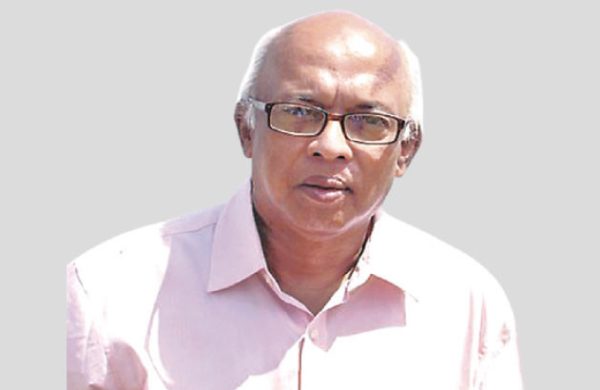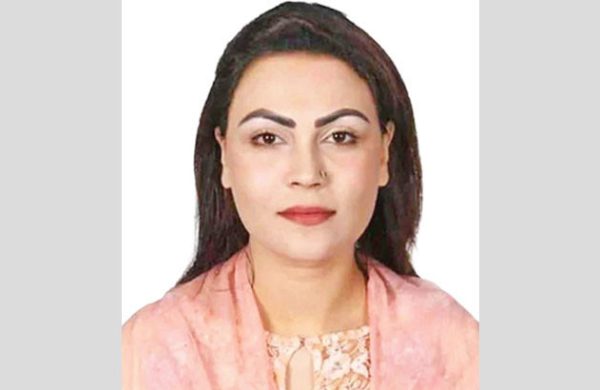Fighting False Information amidst Quota Reform Effort
- Update Time : Saturday, August 3, 2024

–Dr Rashid Askari–
The power of rumours to influence public opinion, political narrative construction, and social cohesiveness has persisted from time immemorial. The rise of the Internet, digital communication, and social media in the 21st century has hastened the spread and impact of rumours, which in turn threaten social and intercommunal harmony, good governance, and political and social stability. There is a concerning trend in digital literacy in Bangladesh, a country with over 131 million Internet customers as of 2023 according to figures from the Bangladesh Telecommunication Regulatory Commission (BTRC).
Politics and religion, two of Bangladesh’s most delicate subjects, are common targets of rumours. Speculation like this used to spread mostly through word of mouth and, sometimes, more established forms of media. Nevertheless, these are currently spreading at a rapid pace through Twitter, Facebook, and WhatsApp. From false information about public personalities to content that incites conflict between communities, rumours can take many forms.
Rumours in Bangladesh have a knack for catching people off guard by playing on their weaknesses. Some examples of the real-life effects of spreading rumours include acts of political violence and heightened tensions between religious minority and political opponents. Rumours have also played a major role in shaping Bangladesh’s political scene this century. Rumours are a common tool for political groups and their followers to strategically discredit their opponents or rally their base of support.
Fake news and altered photos have proliferated on Bangladeshi social media platforms in recent years, turning them into a battleground for political propaganda. Such false information spreads rapidly, confusing the internet users of Bangladesh and making it harder to differentiate reality from fiction. The spread of false information on the internet has also compromised national security. Despite its largely homogeneous population, Bangladesh is home to sizable religious and ethnic minorities. Mob violence in the state breaks out in response to false claims of religious blasphemy or desecration, demonstrating how susceptible the state is to rumours that play on intercommunal tensions.
Tragic occurrences related to the quota reform campaign have recently followed the same pattern. A great deal of misinformation and outright falsehoods spread across the movement on several online channels, including Facebook, WhatsApp, Telegram, YouTube, and TikTok. The situation was already dire before the Internet went down, drastically limiting the flow of information and making it far more difficult to verify claims. The situation has been made much worse by this deluge of false information.
The students at the University of Dhaka and other universities were confused and terrified as rumours circulated through different Facebook groups and sites about fights and deaths during the crisis. There have been rumours going around that the number of protest deaths was inflated. As an example, there are a number of films on YouTube that falsely claim to have found 100 corpses in the Hatirjheel region of Dhaka.
A number of rumours have circulated regarding prominent political personalities in the country who were involved in the issue. One such example is the widespread belief that Prime Minister Sheikh Hasinahad left the nation during the Internet blackout. The Prime Minister’s planned trips to Brazil and Spain from July 21st to the 29th sparked the rumour. But because of the country’s condition, the visits were cancelled. This episode highlights the potential for malevolent manipulation of factual information. Another rumour about opposition leader Khaleda Zia’s death was also circulating during the protests. But it was eventually disproven as well.
Speculation has been a major factor in the spread of violence across college campuses and the nation since the beginning of the movement. Not only have these rumours intensified the already tense atmosphere in the country, but they have also helped to further exacerbate the political schism. And similar rumours keep circulating.
The detrimental effects of rumours on social and intercommunal cohesion have been a long-standing challenge for both the government and civil society organizations. Efforts have been made to promote media literacy and ethical social media use in order to lessen the impact of rumours. The problem of rumours in Bangladesh, however, calls for a multipronged strategy. The country’s regulatory frameworks for online communication and social media are currently undergoing revisions in an effort to curb disinformation without limiting people’s right to free speech. The fast development of internet platforms and the difficulties in identifying rumour starters make it impossible to implement these rules. It is also necessary to educate the public on how to recognize reliable sources of information through media literacy initiatives. To dispel myths and encourage debate based on facts, fact-checking groups and independent media channels are vital.
Finally, in this century, rumours have truly taken over Bangladesh’s political and social landscape. During the current quota reform effort, it was shocking to see how they were exploited as manipulative and divisive instruments. In light of this harsh truth, protecting Bangladesh’s democratic institutions and encouraging societal cohesion in the face of the threats offered by online rumours would need cultivating a mindset of critical thinking and responsible online citizenship. Efforts to counteract disinformation and maintain civil debate in Bangladesh will need to adapt to new technologies as they emerge.
We are deeply shocked at and condemn the anti-quota movement casualties across the country, and we want a judicial investigation into all killings in violence centring the quota reform protest between July 16 and July 21. We also condemn the use of unprecedented violence in the name of protest and want the unruly vandals playing havoc with public properties to be struck with an iron fist. Above all, we urge people to perform their civic duties and responsibilities conscientiously and not to be carried away with rumours, and to start reacting. The government should take all necessary steps to quash rumours and make peace with the students.
_____________________________________
Dr. Rashid Askari is the Director General of Bangla Academy and former Vice Chancellor of Islamic University Bangladesh



















